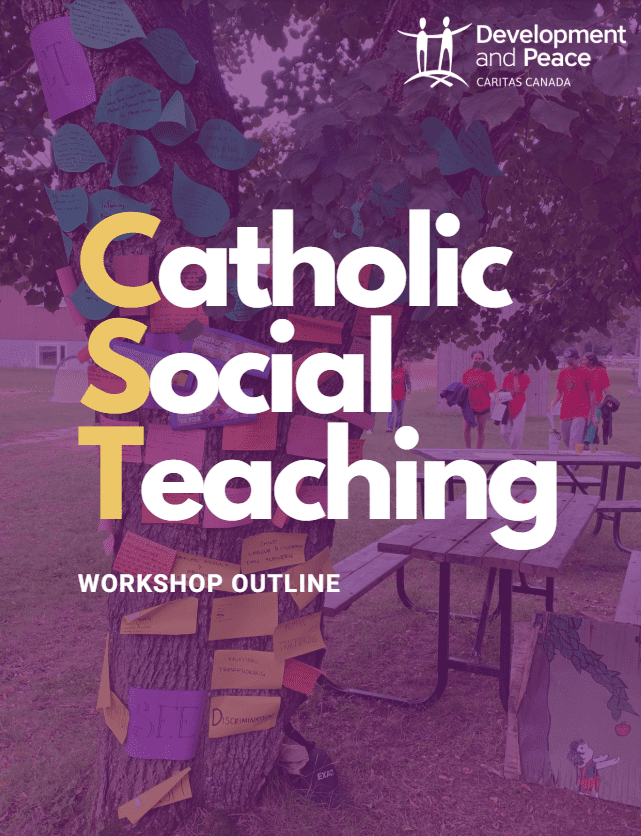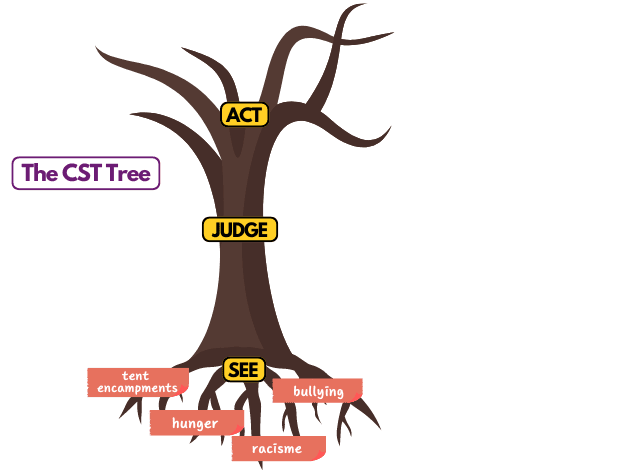Catholic Social Teaching, or CST, gives us a rich tradition for thinking about how our faith engages the world. With human dignity at its centre, CST is the foundation for what Pope Francis calls “integral human development,” which recognizes that everything is connected. In a message to popular movements, he explains that the “social teaching of the Church does not have all the answers, but it does have some principles that along this journey can help to concretize the answers, principles useful to Christians and non-Christians alike.”
While there are many organizations contributing to development around the world, what sets Development and Peace ― Caritas Canada apart is that it is rooted in CST. In this resource, you can explore ten interrelated CST principles and how they guide our work!
Use our CST Workshop Guide to explore the Catholic Social Teaching through the “See, Judge, Act” model, encouraging students to:




Learn and promote all 10 Catholic Social Teachings (CSTs) in your school community in order to earn this badge.
About us
Our work
Get involved
Ways to give
Resources
Get in touch
555 René-Lévesque Blvd. West, 8th Floor
Montreal (Quebec) Canada H2Z 1B1
Phone: 514-257-8711
Toll-free: 1-888-234-8533
Fax: 514-257-8497
Email: info@devp.org
Charity number: 1 1882 9902 RR 0001


Our international cooperation program is carried out in part with the financial support of the Government of Canada acting through Global Affairs Canada.
Development and Peace — Caritas Canada is the official international solidarity organization of the Catholic Church in Canada and the Canadian member of Caritas Internationalis.
Copyrights © 2024
Don’t miss anything about the work of our international partners or our awareness and mobilization campaigns.
Sign up now for our newsletter.